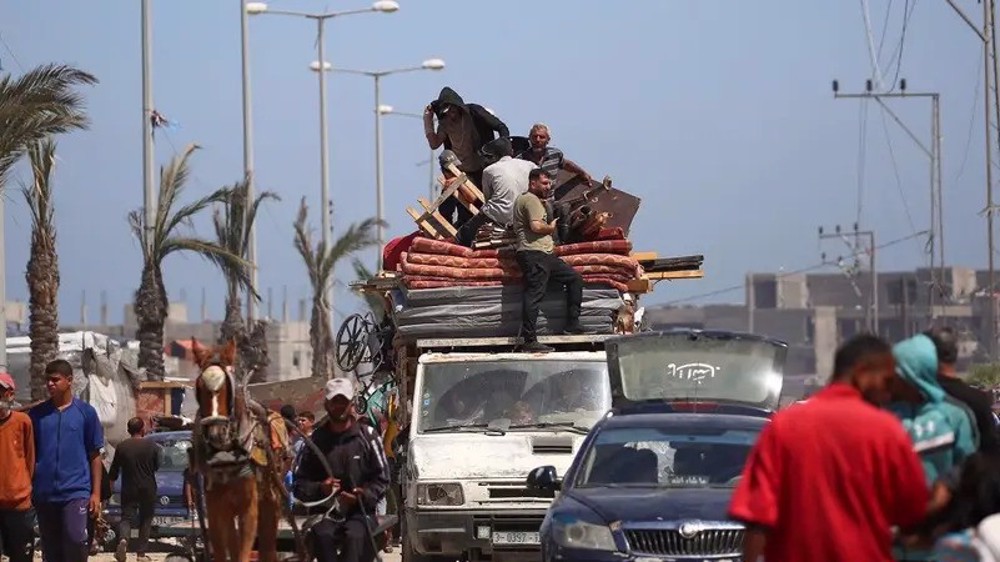Ahlulbayt News Agency: The UN agency for Palestinian refugees (UNRWA) says Rafah now resembles a “ghost town” in large parts in the wake of Israel’s invasion of the southern city in the besieged Gaza Strip.
“It's hard to believe there were over 1 million people sheltering here just a week ago,” UNRWA communications officer Louise Wateridge said in a post on X on Tuesday.
“Families have moved as far west as possible, now reaching the shore and along the beach,” she said.
The UN agency says nearly 450,000 Palestinians have been forced to leave the city due to the Israeli offensive.
“UNRWA estimates that nearly 450,000 people have been forcibly displaced from Rafah since May 6,” the agency said on X.
This morning in western #Rafah: families have moved as far west as possible, now reaching the shore & along the beach. Today awoken by navy shelling.
Inland in Rafah is now a ghost town. It’s hard to believe there were over 1 million people sheltering here just a week ago. pic.twitter.com/2vcJRutzOS
Israel claims Mawasi, on Gaza’s western coast, is a “safe zone” but humanitarian groups and displaced Palestinians say tens of thousands of people are crammed into the area and are facing severe food and water shortages as well as periodic bombardments.
Georgios Petropoulos, an official with the UN Office for the Coordination of Humanitarian Affairs (OCHA) in Rafah, earlier said humanitarian workers had no supplies to help them set up in new locations and accommodate the tens of thousands of new people from Rafah.
“We simply have no tents, we have no blankets, no bedding, none of the items that you would expect a population on the move to be able to get from the humanitarian system.”
The Israeli regime kept the Rafah crossing shut for the seventh day in a row, blocking the entry of aid and the passage of the elderly and the injured.
/129

